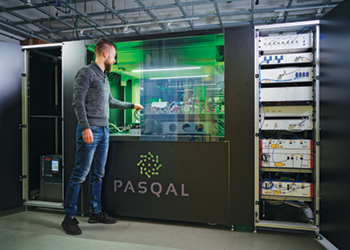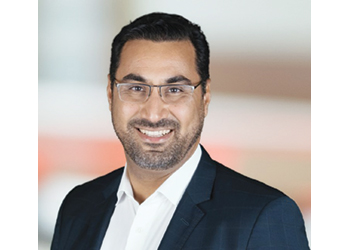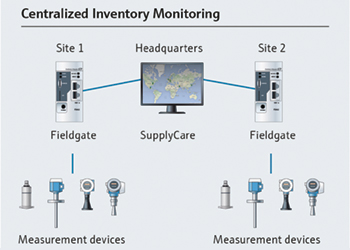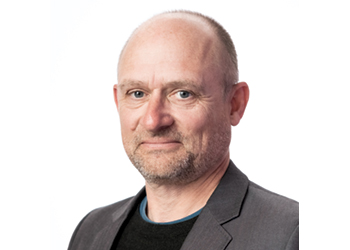
 Pasqal's quantum computer is built on a neutral atom architecture
Pasqal's quantum computer is built on a neutral atom architecture
The quantum approach enables calculations that are simply impossible today, which is one of the reasons the oil and gas sector will be among the first beneficiaries, Georges-Olivier Reymond* tells OGN
Quantum computing is something many people have heard of, but few can define or certainly identify how this nascent technology adds value for its users.
In much the same way as artificial intelligence (AI), quantum computing has been developed by scientific researchers over decades but is not yet widely familiar or used in industry. However, this is beginning to change.
Recent advances in research and development have allowed developers of quantum computers to scale their product, both in terms of hardware and software, as well as peripherals.
I co-founded one such company, Pasqal, back in 2019. Since then, years of work and investment have been put into the project to get us to the point where we are today.
Earlier this year, our company announced an MoU with Aramco, which will be focused on developing applications and business cases for quantum computing in Aramco’s operations. But before we dive into those potential applications, first let’s examine what quantum actually is.
WHAT IS A QUANTUM COMPUTER?
Unlike today’s computers, which we call classical computers, quantum computers operate completely differently.
Quantum bits, or qubits, do not exist exclusively in a state of zero or one as opposed to classical bits, and can exist in multiple states at once.
They exploit the properties of the natural world to offer computing power, which is far greater than even the world’s fastest super computers.
This in turn opens up an incredible array of possibilities in everything from pharmaceuticals and healthcare to aerospace, from finance to logistics and, of course, oil and gas.
Boston Consulting Group has suggested this could represent an $850-billion opportunity globally.
This is in part why there is a massive worldwide effort ongoing to build and commercialise quantum computers.
The quantum approach enables calculations that are simply impossible today, which is one of the reasons the oil and gas sector will be among the first beneficiaries.
 |
Reymond ... taking a quantum leap |
Computing is not the only field in which quantum phenomena can be exploited to create major technological advances with promising commercial applications for industry.
For example, another such area within quantum information sciences is quantum sensing. These advanced sensors can be used in the energy sector, as well as mining, to quickly and easily identify deposits underground. These can then be modeled and evaluated before drilling hundreds of holes, making exploration far less costly.
Elsewhere, quantum-enabled data encryption can provide a higher standard of protection for data which is vastly more secure than today’s most stringent cybersecurity practices.
Application of this kind of quantum technology will help ensure utilities, banks, governments and ordinary citizens are able to protect sensitive information for years to come from those who may seek to do harm with it.
There are multiple promising applications for quantum computing as well, which is perhaps the best known among the three types of quantum technologies.
Efficient quantum algorithms with mid-term quantum advantage already appeal to early adopters in a number of industries.
Quantum computing functions which are of primary interest to the oil and gas industry include:
• Solving graph-based problems, for instance with graph kernel methods.
• Solving nonlinear differential equations, (problems where a change in one of the variables does not uniformly affect the outcome).
• Chemistry and materials simulations.
In some cases, solving these kinds of mathematical calculations would take decades or even longer on existing classical computers, and represent some of the most pressing use cases for quantum that will help keep humankind safe and healthy while preserving our collective prosperity.
QUANTUM COMPUTING CAN SUPPORT THE ENERGY SECTOR
There are many different ways to build a quantum computer. My team and I believe in the neutral atom approach, a highly scalable quantum architecture, and we have built the world’s most powerful neutral atom computer.
These machines can be particularly effective in solving non-linear differential equations or other calculations related to computational fluid dynamics.
Problems like these can sometimes pose roadblocks in the oil and gas industry, which has invested incredible sums in its own high performance computing centres because of its urgent need to solve these types of problems.
And these computational challenges need to be solved all up and down the energy value chain, upstream, downstream, logistics, cybersecurity, the designing of fuels and even in the finance function.
Just looking at some of the challenges which can be addressed by applying quantum computing to differential equations, we project significant enhancements in:
• Finding and testing storage sites: There are several flow models used in the oil industry to address fluid flow encountered in naturally fractured reservoirs.
Flow models for naturally fractured reservoirs are one of the use cases addressable by quantum algorithms when formulated as differential equation problems.
• Process engineering: Various boiler parameters are continuously tracked and regulated to avoid drilling delays. Vibration simulations are one of the parameters that can be modeled as differential equations.
• Weather modeling: Weather models are highly complex as they incorporate data on many parameters like winds, heat transfer, solar radiation, humidity or topology. Weather forecasting, therefore, requires solving complex sets of nonlinear differential equations.
• Seismic data processing: Graph-based methods are used to optimise the characterisation of Seismic Source. Seismic sources are modeled as graph attributes, waveforms as node attributes and measurement locations as graph nodes of the seismic network.
Other practical use cases for quantum computing, for example, in chemistry and materials modelling at the atomistic level, would include developing novel petrochemical catalysis processes or novel energy storage technology.
Quantum algorithms are already proven efficient in each of those categories. Even certain types of financial modelling can be enhanced in a significant way through quantum computing.
This is what’s driving the perception among oil and gas companies that quantum computing is an important new tool for solving some of their complex computations.
Helping companies in the energy sector operate more efficiently and produce superior products all while reducing their carbon footprint are just a few of the ways quantum computing can deliver value for users.
Interestingly, this will actually be realised sooner in the oil and gas business because of the large-scale challenges the industry is tackling. This makes the oil and gas industry a likely candidate to enjoy early quantum advantage.
Adding machine learning (ML) algorithms to the incredible power of quantum computers yields solutions which otherwise have simply not been achievable with existing technology. It brings far more possibilities than mere optimisation of large data sets.
Through prediction modelling and regression analysis, a wide array of objectives from forecasting the market’s consumption of energy to helping plan production, to strategically selecting sites for new facilities which offer the most upside to a company, can each be achieved in record time.
Digital twins for planning maintenance can also be developed with tremendous accuracy. And by applying the technology to materials science, new compounds may potentially be developed which could lead to the creation of low carbon fuels, thereby reducing emissions.
Quantum computers built on a neutral atom architecture enjoy an advantage when performing these kinds of calculations because of the flexibility built into the hardware itself.
The calculations are done by first translating the problem so it can be represented graphically.
Using these machines, we can manipulate the atoms and position them to represent the equation graphically within a quantum system.
Neutral atom quantum computers are also the only type which allow for arranging atoms in one-, two- dimensional and three-dimensional geometries. This allows each atom to interact with a greater number of atoms because they are placed all around each other, not just side by side.
Again, it is the flexibility which this model allows that makes it ideally suited to tackling these kinds of problems. Neutral atom architectures can arrange their atoms in practically any formation.
Quantum computing can be beneficial to nearly every function of an oil and gas company and we anticipate a near-term quantum advantage for the industry.
There are applications for it in finance, chemistry, operations, accounting, construction, shipping and logistics, and many more. The larger the scale of the challenge, the greater the advantage a quantum computer can offer.
My vision for the growth of Pasqal includes working closely with the oil and gas sector and expanding our number of employees in the Middle East as we move closer to delivering quantum advantage for these industries.
Gaining insights into the inner workings of this industry helps us accelerate our development of both hardware and software, tweaking it until it is ready to perform immense calculations that deliver millions and millions in value added solutions for our partners.
Quantum computing is delivering value today and we expect to achieve quantum advantage within two years.
Those who have the foresight to explore how quantum can enhance their business can already gain a real advantage in the market; one which investors and regulators are both likely to take notice of.
* Georges-Olivier Reymond is CEO and Co-Founder at Pasqal, a full-stack quantum computing company based in Paris, and with operations across Europe and the Middle East
By Abdulaziz Khattak














































































